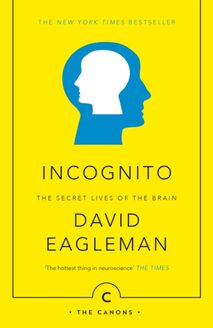-
 Univers
Univers
-
 Ebooks
Ebooks
-
 Livres audio
Livres audio
-
 Presse
Presse
-
 Podcasts
Podcasts
-
 BD
BD
-
 Documents
Documents
-
- Cours
- Révisions
- Ressources pédagogiques
- Sciences de l’éducation
- Manuels scolaires
- Langues
- Travaux de classe
- Annales de BEP
- Etudes supérieures
- Maternelle et primaire
- Fiches de lecture
- Orientation scolaire
- Méthodologie
- Corrigés de devoir
- Annales d’examens et concours
- Annales du bac
- Annales du brevet
- Rapports de stage
La lecture à portée de main
Vous pourrez modifier la taille du texte de cet ouvrage
Découvre YouScribe en t'inscrivant gratuitement
Je m'inscrisDécouvre YouScribe en t'inscrivant gratuitement
Je m'inscrisEn savoir plus
Vous pourrez modifier la taille du texte de cet ouvrage
En savoir plus

Description
Informations
| Publié par | Canongate Books |
| Date de parution | 07 mars 2013 |
| Nombre de lectures | 0 |
| EAN13 | 9781782111610 |
| Langue | English |
| Poids de l'ouvrage | 2 Mo |
Informations légales : prix de location à la page 0,0400€. Cette information est donnée uniquement à titre indicatif conformément à la législation en vigueur.
Extrait
Alessandro Baricco was born in Turin in 1958. He is the author of thirteen novels, as well as a number of essay and short story collections, a modern rendition of The Iliad and a theatrical monologue. He has won the Prix Médicis Étranger in France and the Selezione Campiello, Viareggio and Palazzo al Bosco prizes in Italy.
Alastair McEwen was born in Dunfermline, Scotland. He has translated works by, among others, Umberto Eco, Alessandro Baricco, Antonio Tabucchi and Aldo Busi.
Selected works in translation by Alessandro Baricco The Young Bride Three Times at Dawn Mr Gwyn Emmaus Without Blood An Iliad City Silk Lands of Glass
The Canons edition published in Great Britain in 2019 by Canongate Books
First published in Great Britain in 2008 by Canongate Books Ltd, 14 High Street, Edinburgh EHI ITE
First published in the US in 1999 by Alfred A. Knopf, a division of Random House Inc., New York, and in Canada by Random House of Canada Ltd, Toronto
Originally published in Italy as Oceano Mare by Rizzoli Libri, S.p.A., Milan, in 1993
This digital edition first published in 2013 by Canongate Books
canongate.co.uk
Copyright © RCS Rizzoli Libri S.p.A., Milan, 1993, 2007
English translation copyright © RCS Rizzoli Libri S.p.A., 1999
Translation into English by Alastair McEwen
The right of Alessandro Baricco to be identified as the author of the work has been asserted by him in accordance with the Copyright, Designs and Patents Act 1988
The moral right of Alastair McEwen as the translator of this work has been asserted
This English translation was supported by the Italian Cultural Institute
British Library Cataloguing-in-Publication Data
A catalogue record for this book is available on request from the British Library
ISBN 978 1 78689 643 8 eISBN 978 1 78211 161 0
To Molli,
amata amica mia
Contents
Book I
Chapter 1
Chapter 2
Chapter 3
Chapter 4
Chapter 5
Chapter 6
Chapter 7
Chapter 8
Book II
Book III
Chapter 1
Chapter 2
Chapter 3
Chapter 4
Chapter 5
Chapter 6
Chapter 7
Chapter 8
BOOK I
The Almayer Inn
CHAPTER 1
S AND AS FAR AS the eye can see, between the last hills and the sea the sea in the cold air of an afternoon almost past, and blessed by the wind that always blows from the north.
The beach. And the sea.
It could be perfection an image for divine eyes a world that happens, that is all, the mute existence of land and water, a work perfectly accomplished, truth truth but once again it is the redeeming grain of a man that jams the mechanism of that paradise, a trifle capable on its own of suspending all that great apparatus of inexorable truth, a mere nothing, but one planted in the sand, an imperceptible tear in the surface of that sacred icon, a minuscule exception come to rest on the perfection of that boundless beach. From afar he would be no more than a black dot: amid nothingness, the nothing of a man and a painter’s easel.
The easel is anchored by slender cords to four stones placed on the sand. It sways imperceptibly in the wind that always blows from the north. The man is wearing waders and a large fisherman’s jacket. He is standing, facing the sea, twirling a slim paintbrush between his fingers. On the easel, a canvas.
He is like a sentinel this you must realize standing there to defend that part of the world from the silent invasion of perfection, a small crack that fragments that spectacular stage set of being. As it is always like this, you need only the glimmer of a man to wound the repose of that which would otherwise be a split second away from becoming truth, but instead immediately becomes suspense and doubt once more, because of the simple and infinite power of that man, who is a slit, a chink, a small doorway through which return a flood of stories and the enormous inventory of what could be, an infinite gash, a marvelous wound, a path made of thousands of steps where nothing can be true anymore but everything will be just as the steps are of that woman who, wrapped up in a purple cloak, her head covered, is pacing the beach with measured tread, skirting the backwash of the sea, her feet tracing furrows from right to left across what is by then the lost perfection of the great picture, consuming the distance that separates her from the man until she comes to within a few paces of him, and then right beside him, where it takes nothing to pause and silently look on.
The man does not even turn. He continues staring out at the sea. Silence. From time to time he dips the brush in a copper cup and makes a few light strokes on the canvas. In their wake the bristles of the brush leave a shadow of the palest obscurity that the wind immediately dries, bringing the pristine white back to the surface. Water. In the copper cup there is only water. And on the canvas, nothing. Nothing that may be seen .
The north wind blows as it always does, and the woman pulls her purple cloak closer around her.
"Plasson, you have been working for days and days down here. Why do you carry all those colors around with you if you do not have the courage to use them?"
This seems to wake him up. This hits home. He turns to observe the woman’s face. And when he speaks, it is not to reply.
"Please, do not move," he says.
Then he brings the brush up to the woman’s face, hesitates a moment, rests it on her lips, and slowly runs it from one corner of her mouth to the other. The bristles come away tinged with carmine. He looks at them, dips them ever so slightly in the water, and looks up once more toward the sea. On the woman’s lips there lingers the hint of a taste that obliges her to think "sea water, this man is painting the sea with the sea" and it is a thought that brings a shiver.
For some time now she has already turned around, and is already pacing measuredly back along the immense beach, her steps a mathematical rosary, when the wind brushes the canvas to dry a puff of rosy light, left to float unadorned amid the white. You could stay for hours looking at that sea, and that sky, and everything, but you would find nothing of that color. Nothing that may be seen .
The tide, in those parts, comes in before night falls. Just before. The water surrounds the man and his easel, it clutches them, slowly but with precision, they stay there, the one and the other, impassable, like a miniature island, or a wreck with two heads.
Plasson, the painter.
Every evening a boat comes to pick him up, just before sunset, when the water has already reached his heart. This is the way he wants it. He boards the boat, stows away the easel and all, and allows himself to be taken home.
The sentinel goes away. His duty done. Danger averted. Against the sunset the icon that has again failed to become sacred fades away. All because of that manikin and his paintbrushes. And now that he has gone, time has run out. The dark suspends everything. There is nothing that can, in the dark, become true .
CHAPTER 2
O NLY SELDOM , and in a way that some people, in those moments, when they saw her, were heard to whisper . . .
"She’ll die of it"
or
"She’ll die of it"
or perhaps
"She’ll die of it"
or even
"She’ll die of it."
All around, hills.
My land, thought Baron Carewall.
I T IS NOT EXACTLY an illness, it could be one, but it is something less, if it has a name it must be lighter than air, say it and it’s already gone.
"When she was a little girl, one day a beggar came and began to sing a lullaby, the lullaby startled a blackbird that flew off . . ."
". . . startled a dove that flew off and the fluttering of wings . . ."
". . . the wings that fluttered, the faintest sound . . ."
". . . it must have been ten years ago . . ."
". . . the dove flashed past the window, in a trice, so, and she looked up from her toys and I don’t know, a dread came upon her, but it was a blank dread, I mean to say that she was not like one afraid, she was like one on the point of disappearing . . ."
". . . the fluttering of wings . . ."
". . . one whose soul was fleeing . . ."
". . . do you believe me?"
They believed that she would grow and everything would pass. But in the meantime all over the castle they were laying carpets because, it is obvious, she was afraid of her own footsteps, white carpets, everywhere, a color that could do no harm, soundless footsteps and sightless colors. In the park, the paths were circular with the single bold exception of a pair of snaking avenues that curled to form smooth regular curves psalms and this was more reasonable, in fact all you need is a little sensitivity to understand that any blind corner is a possible ambush, and two roads that cross are a perfect geometrical violence, enough to frighten anyone who possesses real sensitivity and all the more so her, who was not exactly possessed of a sensitive spirit but, to put it in exact terms, possessed by an uncontrollable sensitivity of spirit forever exploded in who knows which moment of her secret life the merest scrap of a life, young as she was only to return by mysterious ways to her heart, and her eyes, and hands and all over, like an illness, although it was not an illness, but something less, if it has a name it must be lighter than air, say it and it’s already gone.
This is why, in the park, the paths were circular.
Nor should you forget the story of Edel Trut, whose skill in weaving silk was unrivaled throughout the land and that was why he was summoned by the Baron, one winter’s day, when the snow lay as tall as children, as cold as the devil, and getting that far was hellish hard, the horse steaming, its hooves slithering about haphazardly in the snow, and the sleigh behind drifting to the leeward, if I don’t get there in ten minutes perhaps I’ll die, as sure as my name’s Edel, I’ll die, and what’s more without even knowing what the devil the Baron wants to show me that’s so important . . .
"What do you see, Edel?"
In his daughter’s room, the Baron stands in front of the l
-
 Univers
Univers
-
 Ebooks
Ebooks
-
 Livres audio
Livres audio
-
 Presse
Presse
-
 Podcasts
Podcasts
-
 BD
BD
-
 Documents
Documents
-
Jeunesse
-
Littérature
-
Ressources professionnelles
-
Santé et bien-être
-
Savoirs
-
Education
-
Loisirs et hobbies
-
Art, musique et cinéma
-
Actualité et débat de société
-
Jeunesse
-
Littérature
-
Ressources professionnelles
-
Santé et bien-être
-
Savoirs
-
Education
-
Loisirs et hobbies
-
Art, musique et cinéma
-
Actualité et débat de société
-
Actualités
-
Lifestyle
-
Presse jeunesse
-
Presse professionnelle
-
Pratique
-
Presse sportive
-
Presse internationale
-
Culture & Médias
-
Action et Aventures
-
Science-fiction et Fantasy
-
Société
-
Jeunesse
-
Littérature
-
Ressources professionnelles
-
Santé et bien-être
-
Savoirs
-
Education
-
Loisirs et hobbies
-
Art, musique et cinéma
-
Actualité et débat de société
- Cours
- Révisions
- Ressources pédagogiques
- Sciences de l’éducation
- Manuels scolaires
- Langues
- Travaux de classe
- Annales de BEP
- Etudes supérieures
- Maternelle et primaire
- Fiches de lecture
- Orientation scolaire
- Méthodologie
- Corrigés de devoir
- Annales d’examens et concours
- Annales du bac
- Annales du brevet
- Rapports de stage




















